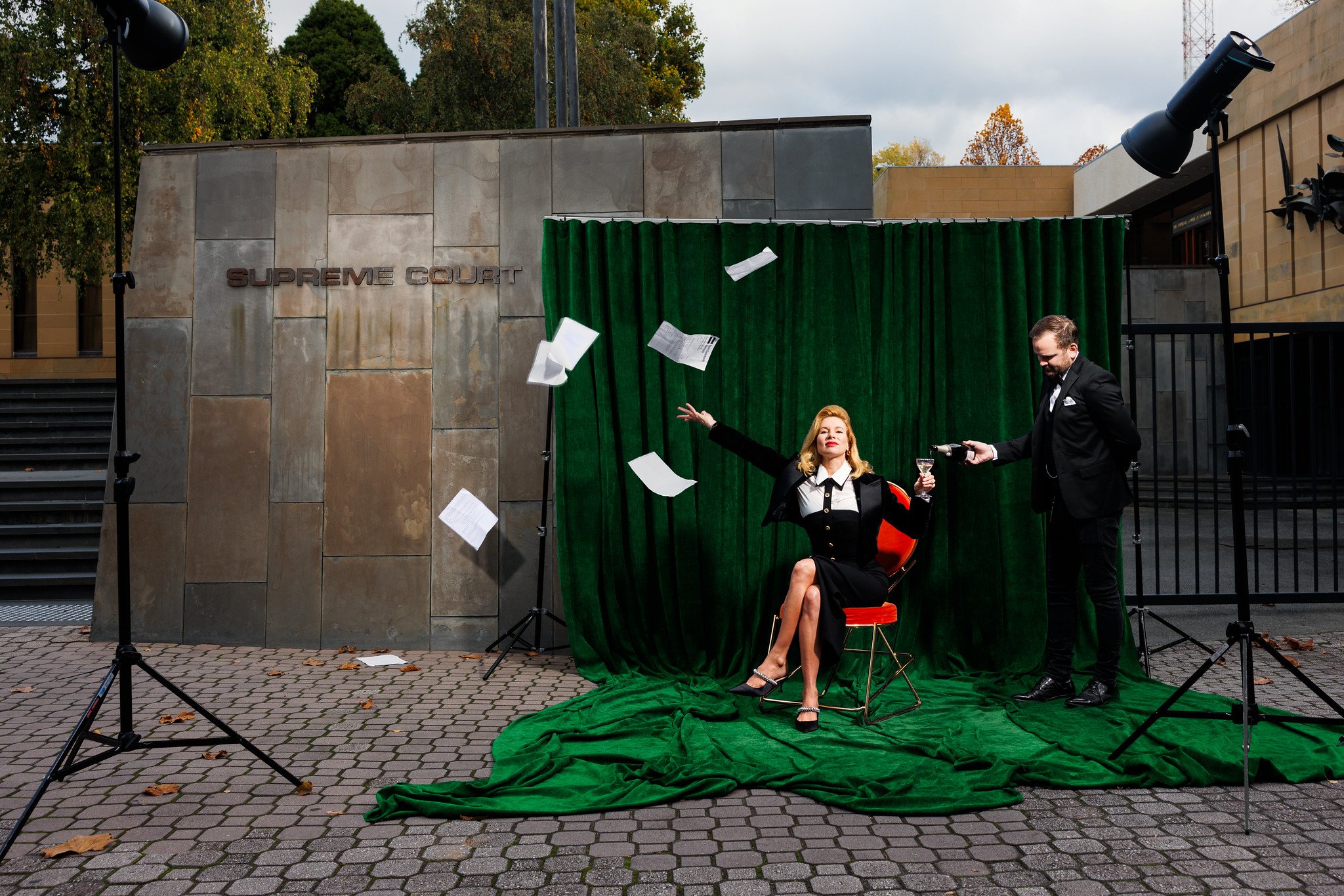
Kirsha Kaechele’s Ladies Lounge at the Museum of Old and New Art in Tasmania, Australia, was a women-only haven where men existed only to wait on women while they relaxed in the company of select artworks from the institution’s collection and other cultural treasures. Since it opened in 2020, it provided a dedicated place for women that allowed the artist/curator to make a sly comment on the long history of discrimination against women by turning the tables on men and depriving them of something for a change.
“The artwork evokes in men the lived experience of women forbidden from entering certain spaces throughout history,” said the museum.
But Jason Lau, a male museum visitor from New South Wales, visited the museum last April and found that the installation discriminated against him. He brought a legal complaint with the local Anti-Discrimination Commissioner at the Tasmanian Civil and Administrative Tribunal. The case went to a hearing in March, and last month Judge Richard Grueber decided against the artist, calling the artwork “direct discrimination.” The museum said it would need time to “absorb the result” before deciding on its next move.
Well, the museum has apparently absorbed the result. Artist and museum will take their case to the Supreme Court of Tasmania, in Hobart, where seven justices will decide on the artwork’s fate.
High Tea for Two, Ladies Lounge at Mona, curated by Kirsha Kaechele. Photo: Mona/Jesse Hunniford. Courtesy MONA Museum of Old and New Art, Hobart, Tasmania, Australia.
“I’ve decided to take this to the Supreme Court,” said Kaechele. “I think it’s worth exercising the argument, not only for the Ladies Lounge, but for the good of art, and the law. We need to challenge the law to consider a broader reading of its definitions as they apply to art and the impact it has on the world, as well as the right for conceptual art to make some people (men) uncomfortable. Ladies love the Lounge—a space away from men—and given what we have been through for the last several millennia, we need it! We deserve both equal rights and reparations, in the form of unequal rights, or chivalry—for at least 300 years.”
In the museum’s view, the tribunal “took too narrow a view in terms of women’s historical and ongoing societal disadvantage and did not recognize how the experience of the Ladies Lounge can promote equal opportunity.”
The court’s ruling gave MONA 28 days to “reform” (to wit, to cease refusing entry to men). Since the artist and the institution don’t plan to change the installation’s rules, the Ladies Lounge is closed until further notice.
Kirsha Kaechele Ladies Lounge hearing. Photo: Mona/Charlotte Vignau. Courtesy Museum of Old and New Art, Hobart, Tasmania, Australia.
“I am grateful to have received so many wonderful ideas for the future of the Ladies Lounge, and possibilities for its reformation,” said Kaechele, who then went on to pun on the next phase of the legal case, saying, “This encouragement has reassured me that I am indeed appealing.”
In fact, Kaechele has displayed an endearingly dry sense of humor throughout the proceedings. A group of women accompanied her to court for the hearing, all identically dressed and in matching lipstick. When she exited the courtroom, they all danced their way out to Robert Palmer’s song “Simply Irresistible,” presumably referring to the plaintiff’s irresistible desire to enter the women-only space.
Now, she has published a very lengthy interview on the museum’s blog, in which she lays out the reasons she feels the court ruled wrongly, and the many, many ways she may be able to win her appeal. Among her options, she might take advantage of an exemption in the anti-discrimination statute for religious institutions by turning the Lounge into a church or bible study group, or, taking advantage of another exemption, a bathroom (it would be renamed the Ladies Room), in which case she might bring Duchamp’s Fountain (1917), his first Readymade, in the form of a urinal, to the Lounge.
“I actually think the lawsuit is a blessing in disguise,” she said. “The verdick encourages us to move beyond the simple pleasures of champagne and expensive art—you probably know the Lounge includes two Picasso paintings. Thanks to the ruling, we have no choice but to open ourselves to a whole range of enriching experiences—spiritual, educational… To discover fascinating new possibilities, and to become better.”